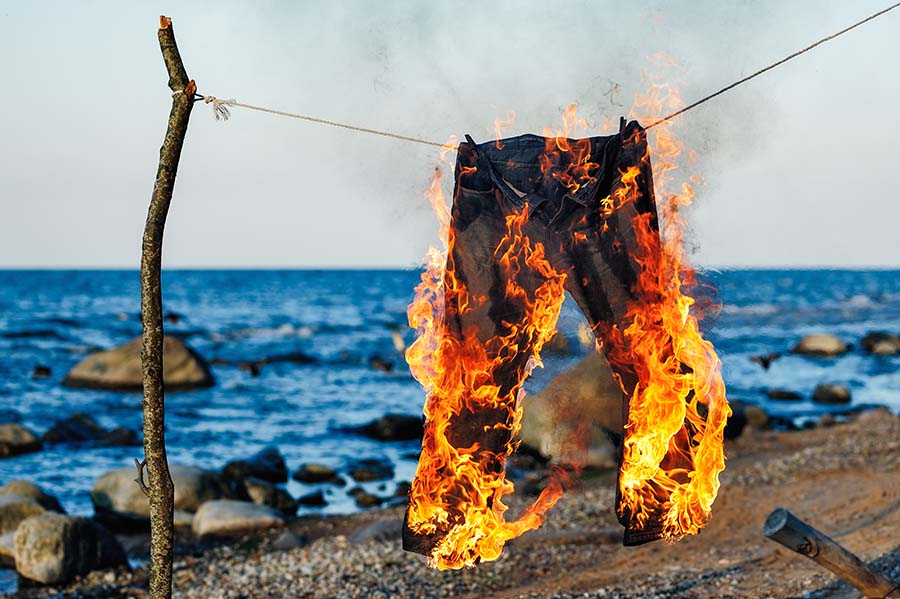‘I don’t care, I don’t care, I can buy another pair.’ is apparently, (should you ever need to use it) the recommended response to the well-known childhood taunt, ‘Liar, liar pants on fire.’ Sadly I only learned this earlier this year while watching children’s television with a friend’s five-year-old. It would have come in handy if I’d known it years ago when my older brother used to accuse me of having pants on fire on a fairly regular basis. This was not necessarily because I am in the habit of telling frequent lies, but it was used to indicate that I might have been exaggerating some of the things we did. It is not a taunt that is generally used for severe misdemeanors.
It is a little ironic that such a familiar saying about lying is shrouded in mystery and untruths. Many different versions of the rhyme exist, with no one knowing what the definitive version is or its origins. Probably the most commonly known version of the verse is the one which has the third line, ‘Your nose is stuck to the telephone wire.’ Even then, there are records of several variations on this theme, such as: ‘Your nose is as long as a telephone wire’ or versions which replace the nose with the much more painful appendage, ‘tongue.’
Read more: What is Vegan Leather Anyway?
What does it mean when your pants are on fire?
No matter which of these tag lines you opt for, it does help us find some indication of when this rhyme may have been coined. The invention of the telephone in the mid-nineteenth century is relatively recent and seems to correspond with claims that the saying has been around since the 1840s. However, it does not give us any insight into what the rhyme is referring to, and its meaning is not at all clear. There seems to be no logical explanation for why telling a lie should result in the conflagration of your pants. Neither does it proffer any reason why or how it should also result in parts of your anatomy being attached to telephone wires. It seems a severe consequence for telling a lie.
Read more: Walking Corpse Syndrome: Walking Dead Comes to Life
The origins of liar liar
All of this suggests that the rhyme we know is perhaps a modern corruption of a much older one. Records show that people were bandying around verses as far back as the 1400s, calling people out as a ‘liar liar.’ At this stage, however, it did not involve burning trousers. Indeed the use of the word ‘pants’ did not come into the English language until the early 1600s, with the shortening of the name for a new garment known as pantaloons. There is even a possibility that the expression was imported from a well-known Georgian folk tale wherein a thief could always be identified because his hat will catch on fire.
Yet another version of the saying is an old seaman’s verse from the 1840s, which introduces the link between liar and fire.
‘Liar liar lick spit
Turn about the candlestick.
What’s good for a liar?
Brimstone and fire.’
This has led to the suggestion that the link between liars and fire is not just a good rhyme but that the rhyme could come from the threat that punishment for a liar would be to burn in hell. Incorrect.
The lies behind liar liar pants on fire
Bizarrely, one of the most convincing suggestions about the saying’s origin appears to be a massive untruth. It has commonly been suggested that it was derived from a poem written by William Blake in 1810. The opening of this poem, called ‘The Liar’ is remarkably similar to the household saying,
‘Deceiver, dissembler
Your trousers are alight
From what pole or gallows
Shall they dangle in the night?’
However, it is claimed that this Blake poem is merely a 21st century fake and was written as a parody of both the common saying and Blake’s famous poem, ‘The Tyger.’ As the trousers of liars do not burst into flames, we may never get to the truth behind any of this.


